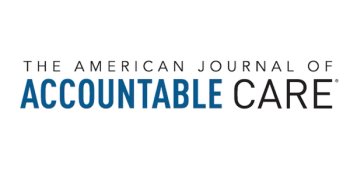
Insurance
Latest News

The Department of Veterans Affairs (VA) will give cancer claims priority when a new law takes effect in January 2023; Pfizer is looking to use its COVID-19 profits to grow other blockbusters; the probable loss of Medicaid coverage for millions next year is setting off debate.
Latest Videos

CME Content
More News

Female physicians identified cost and access barriers to fertility care, which are especially relevant as more US women are choosing to delay childrearing.

Joseph Alvarnas, MD, vice president of government affairs at City of Hope and chief clinical adviser of AccessHope in Duarte, California, discusses the recently passed Cancer Care Equity Act in California that provides access to clinical trials and advanced care for Medi-Cal beneficiaries.

In an interview, the section chief of hepatology at Rush University Medical Center discussed why the addition of the International Classification of Diseases, Tenth Revision, Clinical Modification (ICD-10-CM) diagnosis code K76.82 is necessary.

Black and Latino Americans saw surges in health care insurance enrollment through the Affordable Care Act (ACA) between 2020 and 2022; Medicaid enrollment and spending is expected to slow in 2023; the Biden administration is preparing a national hepatitis C treatment plan.

While a majority of national lives are covered by vertically integrated insurers, the proportion varies widely at the state level from as low as 6% to as high as 97% of covered lives, according to a new American Medical Association (AMA) report about competition in the pharmacy benefit manager (PBM) sector and insurance.

This study evaluates impact of a real-time benefit tool on medication access and physician and pharmacy workflows at a large academic medical center.

Offering a high-deductible health plan (HDHP) led to a 6.6% reduction in the probability of using substance use disorder services and a shift in spending from the plan to the enrollee.

Enrollees who join Medicare Advantage undergo significant turnover in the years following enrollment.

Hospital price transparency data suggest that health insurance exchange (HIX) plans get lower negotiated rates than commercial group plans and higher negotiated rates than Medicare Advantage plans.

Only low-income male Medicare beneficiaries had worse patient experience than their female counterparts. The authors discuss opportunities to improve experiences for all patients.

The authors describe a pay-for-performance initiative targeting behavioral health providers, which was introduced by a large Medicaid managed care organization across multiple states.

As Medicare Advantage increasingly becomes the dominant form of Medicare coverage, Congress must improve transparency of programmatic costs and benefits to promote beneficiary choice.

Brindley Brooks, who founded HS Connect (HSconnect.org), a patient advocacy group for those affected with hidradenitis suppurativa (HS), discussed step edits and other barriers to treatment caused by insurance requirements in the management of HS.

Most patients with atopic dermatitis had flunctuating levels of depressive symptoms, with having public or no insurance, more severe itch, and skin pain cited as additional predictors of adverse mental health outcomes.

We estimate that the median 2021 premium tax credit for off-marketplace enrollees in California would be $311 if they switched to marketplace plans, with wide variation by age and plan size.

Medicaid expansion was associated with substantial changes in Medicaid managed care plan composition, which may influence a plan’s performance on enrollee experience metrics.

Limiting access to non–vitamin K antagonist oral anticoagulants through step therapy and prior authorization may exacerbate current underuse of anticoagulants and increase the risk of stroke in patients with newly diagnosed atrial fibrillation.

A recent study calculated the incidence and mortality rates for patients with Medicaid coverage who had nonventilator hospital-acquired pneumonia (NVHAP) and found possible associations between greater health care costs and NVHAP diagnosis.

More people are eligible for screening, but a new analysis suggests lung cancer disparities are due to more than eligibility status.

Clinical trials and targeted agents do not appear to affect health care–related quality of life, however.

This study developed a novel algorithm for setting automatic auditing thresholds in a Medicaid program in Maryland.

This study attempts to identify the sources of the significant 2.5-fold variation found in home health expenditures, a possible indicator of inefficiency and waste.

Four large Medicare Advantage insurers manage access to expensive physician-administered drugs with a combination of prior authorization, step therapy, and Part D formulary design.

Patients who received a diagnosis of small cell lung cancer (SCLC) between 2010 and 2016 had a nearly 2% increase in overall survival vs those who received their diagnosis between 2004 and 2010.

Most patients taking a biologic stayed on the therapy, and most saw decreases in exacerbations, a new study has found.
















